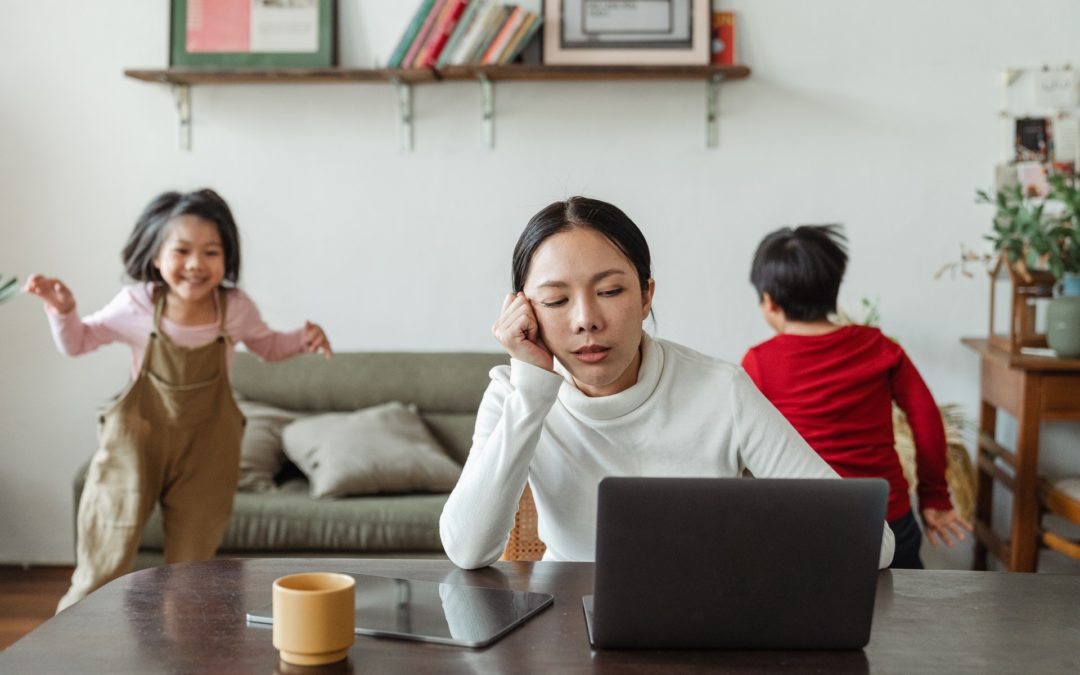The Covid-19 pandemic emptied offices and sent millions to work from home.
While not a silver lining for everyone (parents, we see you), enough people came to prefer this arrangement that flexible scheduling and remote work opportunities remain in high demand despite waning pandemic-related restrictions. People love working from home and yet many are discovering that everything’s not peaches and cream. Working from home may not tack a tiring commute onto your day, but it wears you out in other ways. Recent research shows that remote work may negatively impact mental health, particularly if you are already someone who struggles with a mental health condition.
In 2022, BMC Public Health published a cross-sectional study showing that those who presently struggle with mental health are at particular risk of negative mental health impacts related to working from home. Nonetheless, many without mental health conditions also exhibited negative outcomes. This was especially true of women under the age of 45 with dependents as well as of those forced to work overtime hours. Among numerous causes, the ones that most stood out were leadership quality and place and pattern work.
A 2021 study published by the Journal of Occupational Health likewise demonstrated that working from home had a significant negative impact on existing mental health conditions. In the researchers’ own words, “the worsening of depression and anxiety feelings, sleeping troubles, and loneliness was more prevalent among people working at home.” However, these results concern data gathered during the early stage of the pandemic and thus do not represent a complete picture of the impact working from home may have on mental health.
What to Do If Working from Home is Getting You Down
Numerous factors contribute to the impact working from home can have on mental health. These include decreased physical activity, poor eating habits, environmental distractions (again, looking at you, parents), and lack of social contact, among others. Counteracting the effect thus means making a conscious effort to attend to these challenges.
Has losing your daily bicycle commute meant no more daily exercise? Are you living on carrot sticks and hummus? Has your social life gone online alongside your working life? Identifying the lifestyle changes implied by working from home and determining their effect is the first step in protecting your mental health.
It is easy to overlook the importance of scheduling when you can start work in your pajamas while sipping your morning coffee. Instead of blindly diving into work in the morning and stopping whenever you’re done, begin your day by setting a schedule. Maybe you meditate from 8 am to 9 am, work until lunch, stop to cook and go for a walk, and return to work for a few hours in the afternoon. Or, maybe you start early so that time remains to go kayaking before sundown. Whatever your solution, it is important to reserve time for intentional self-care.
Not all mental health conditions can be managed with just balanced living, however. Often, medical attention is needed to manage the impact of depression, anxiety, or related conditions on quality of life. This usually means medication in conjunction with therapy but not everyone responds to such traditional treatment options.
Fortunately, recent innovation is allowing individuals to find relief from treatment-resistant depression and other mental health conditions in ways previously thought impossible. Ketamine infusion therapy is one science-backed intervention that delivers stunning results. Patients report immediate and lasting relief when they previously had been unresponsive to traditional treatments.
Contact Vitalitas Denver
To learn more about this and other new avenues to mental health treatment, do not hesitate to schedule a consultation at Vitalitas Denver—a ketamine clinic staffed by a qualified and experienced full suite of dedicated medical professionals.


